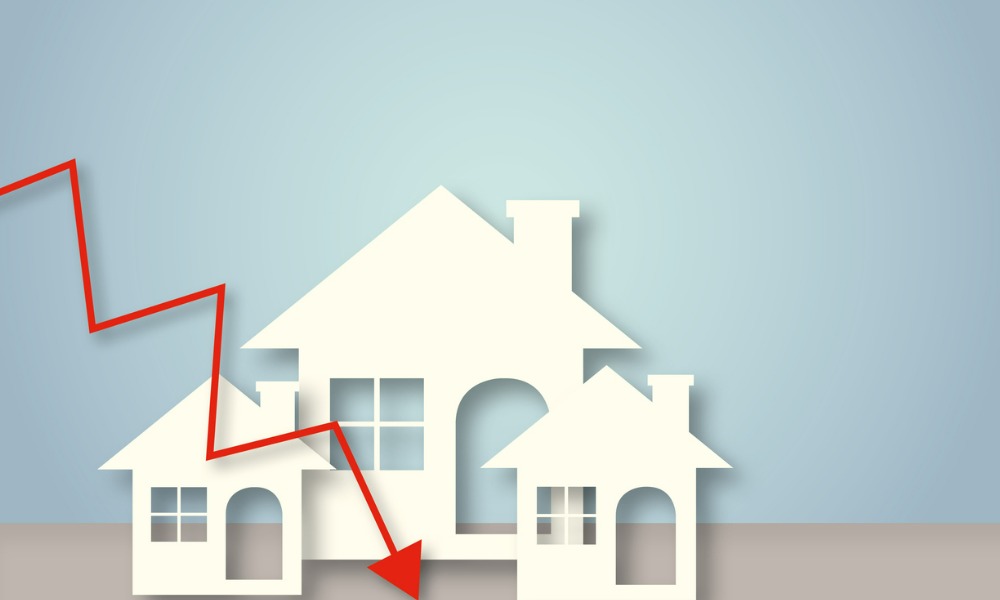Wellington saw the heaviest fall

House values have continued to plunge in November but at a slower pace, with Wellington leading the decline.
CoreLogic’s House Price Index (HPI) dipped 0.6% drop last month – that’s less than half the 1.3% drop in October.
The drop in values was mixed in the major centres, however, with Christchurch seeing an annual rate growth of 4.9%, Wellington falling 15.9%, with Porirua, Lower Hutt, and Upper Hutt experiencing more significant drops, RNZ reported.
“Wellington continues to be at the epicentre of the downturn,” said Nick Goodall, CoreLogic head of research, with affordability the primary reason for the correction.
Dunedin also fared better than most capital cities with a slight 0.3% lift in value.
The price falls in Auckland were also moderate. Goodall said there was a need for caution, however, as many of November’s sales happened before the market was hit by the most recent round of pessimism and continuing interest rate increases. He believes housing affordability will continue to be a concern as we head into 2023, RNZ reported.
“Falling house values are starting to improve many of the measures we track, but persistently increasing interest rates is impacting mortgage serviceability,” Goodall said. “The latest data reports an average 50% of income is required to service a mortgage with 80% loan-to-value ratio for the average dwelling value.”
He also tipped mortgage interest rates to rise to 8% from next year.
Goodall said it was intriguing to see the difference between the New Zealand central bank’s tough stance and the Reserve Bank of Australia’s wait-and-see approach.
“The RBNZ will be wary of this too but appear comfortable in the knowledge they can always reduce the OCR in the future to stimulate the economy and borrowing if required,” he said.
As property prices decline, the number of houses being listed for sale has plummeted by 26% compared with the same period last year.
While some might find the drop in listings “scary,” it should be noted that listings had risen sharply as the Auckland lockdown came to an end last November, said Vanessa Williams, from realestate.co.nz.
The national average asking price is now below $900,000 – that’s 9% lower than January.
Williams said nobody had expected the “hot market” during the pandemic years 2020-21 and the latest figures could be considered as “a correction to the intense growth rate.”
For two years, prices across the regions increased by 25% to 30% which was not sustainable.
The 9% fall in prices since January was a cooling of the inflated COVID-19 period, Williams said.
Earlier this week, ANZ forecasted a 22% drop in prices with the market around halfway through the fall cycle.
“We just don’t know what levers the government or the Reserve Bank are going to pull but should things stay as they are we will probably continue to see that cooling of prices,” Williams told RNZ.
What do you think about the continuing decline in house values? We’d love to hear from you in the comments below.



